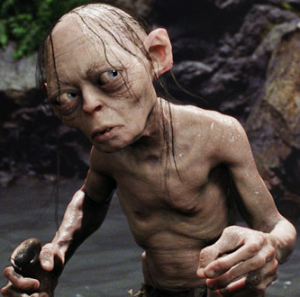
A “Comfy Questions” meme has been doing the rounds among some of my blogging friends, most hilariously Moderate Peril. I can’t guarantee to be as amusing or ornery as Roger – in fact, I can guarantee that I won’t be, and won’t even try – but here is my take on this…
How do I drink my tea?
I’m tempted to answer, Roger-fashion, “Out of a mug, how else?” But I’ll restrain myself. I drink tea with milk, no sugar. However I’m also partial to a Chai Latte, which has not only sugar, but also cinnamon and such.
Favorite dessert?
Don’t really have a single fave. However one of my nieces, a 12yo, has developed an interest in baking and made a gorgeous baklava for us all last time her family was over. That could be a fave just because of who made it. I recommend eating baklava with ice-cream!
Favorite season?
Again it’s hard to pick a fave, as each season has its pluses and minuses. I love the Christmas period, so maybe winter, but the weather is often pretty disagreeable then!
What cheers me up?
Goofing around with kids definitely lifts the spirits amazingly.
Dogs or Cats?
When I was small I wanted a dog; when I was older I lived with assorted cats (not mine). However as a grown man I’ve never wanted either. If it was going to be one or the other, and it was practical to fit into my life, I’d go for a dog though. Best I know you can play and have fun with a dog, and dogs look on you as an adored friend and wise master. Whereas a cat thinks it is royalty and you are simply the domestic help.
Dream holiday?
I’ve been lucky enough to do a lot of traveling over the years, and at this point I don’t have anyplace that I’m still really dying to go. Overall it’s the people you’re with that make vacations wonderful, more so than where you are.
So maybe combine a few of my answers already and make it a big family vacation (with parents, siblings, nieces & nephews etc) around Christmastime, and go to somewhere like Lapland, see some Northern Lights and generally feel the Christmas vibe to the max.
How many kids do you want?
At my age I’m old enough that I’m very unlikely to ever have any kids of my own. I was never opposed to having them, but neither was it all important to me to do so.
Favorite weather?
What I love the absolute most is a cool, perfectly clear, sunny winter’s day. However I enjoy a lot of different kinds of weather as well.
What would your last meal be?
There are not many circumstances in which you eat a meal knowing that it will be your last. Are we imagining I committed a horrible crime here? 🙂
Maybe a homemade pizza.
If you could spend 24 hours anywhere, any year, where would you choose?
Realistically, having first seen Roger’s response (“some cunningly contrived, time travel scheme here, where I could set up some sort of long-term investment plan that would pay off big time now”), I would probably go for copying his idea!
Go visit my former self with some hot tips… “Buy that house whatever it takes dummy, it will be worth a fortune in a few years time…. Also Apple stock…. And when you hear about a little thing called Google: buy, buy, buy!”
But if we weren’t being so pragmatic, there are plenty of times and places I’d like to visit.
How about this: Give me 24 hours on the International Space Station! Not too bothered about the exact year!
If I were a ghost, who or where would I haunt?
I would either haunt The White House (selected inhabitants only) or some eminent scientist who scoffs at the idea of ghosts.
Perhaps I would haunt Harvard University, so I could unsettle generations of scoffing scientists. Also if you have to hang out someplace for all eternity, it is not such a bad place to do it.
What is your family ancestry?
I don’t know a great deal about it. To the best of my very limited knowledge my ancestors were most likely pretty humble farmers, coming from places where there would have been not much in the way of records kept. I could be wrong though.
What scares you?
The prospect of global warming scares me, esp after what we saw this summer.
What are you most grateful for?
A few years back I had some serious knee probs, which thankfully were able to be completely sorted out. So now I’m grateful and delighted that I’m fully able to walk, run, jump, whatever.
Dream job?
If I were actually capable of doing it, probably being some kind of top-notch scientist. Possibly a cosmologist.
Do you believe in aliens?
If I had to guess, I would say most likely there are other life forms out there somewhere. But it would be much more interesting to know than to guess.
Favorite sport?
Fave to play is tennis, but fave to watch is soccer. Only when played at a very high level though, and in general I don’t watch that much sports of any kind.
How do I relax after a long day?
If it’s really been that long then vegging out and collapsing is on the menu! Or in more concrete terms, watching some undemanding-but-good show on streaming, while slumped on the sofa.
Note that this is not the ideal form of evening entertainment, it’s just what I’d have energy for if it had been a really long day.
If I could meet one historical figure, who would I choose and why?
This is again a tough one as there are plenty that come to mind.
I’ll go for Richard Feynman, in part because I’ve got enough idea of what he was like that I’m pretty sure it would be fun and interesting to meet him, rather than turn out badly.
As a teenager he was a big inspiration, and I imagined he’d be a great mentor. Spending time with him you’d maybe pick up a little of his way of looking at things, and it certainly wouldn’t be dull.
If I had to be a teacher, what subject would I teach?
Although I am in no way qualified to teach it, I’d teach English Literature. At least I would be able to read and discuss some good books, and perhaps be a positive influence.
I am interested in (and far better qualified to teach!) various other subjects, but not so keen on how they are treated at school, or are forced on kids who aren’t enthused.
Describe your perfect day?
There’s no such thing, as there are many different kinds of great days.
One is: Go walking with friends somewhere beautiful, say along the coast, and round it off with a great meal.
Describe yourself in a sentence?
“Mostly harmless; he’s just zis guy you know…”
Who makes me laugh the most?
Douglas Adams probably.
What super power would you choose?
I’d take Hiro Nakamura’s abilities.
Favorite animal?
Don’t really have one. Tigers are pretty awesome though.
What is your biggest accomplishment?
Probably helping various people deal with some tough situations.
Which is probably not something I should discuss in any detail in a blog post, hence the vagueness. But there wasn’t anything comfy about those things, so that doesn’t belong in a “Comfy Questions” meme anyhow!











